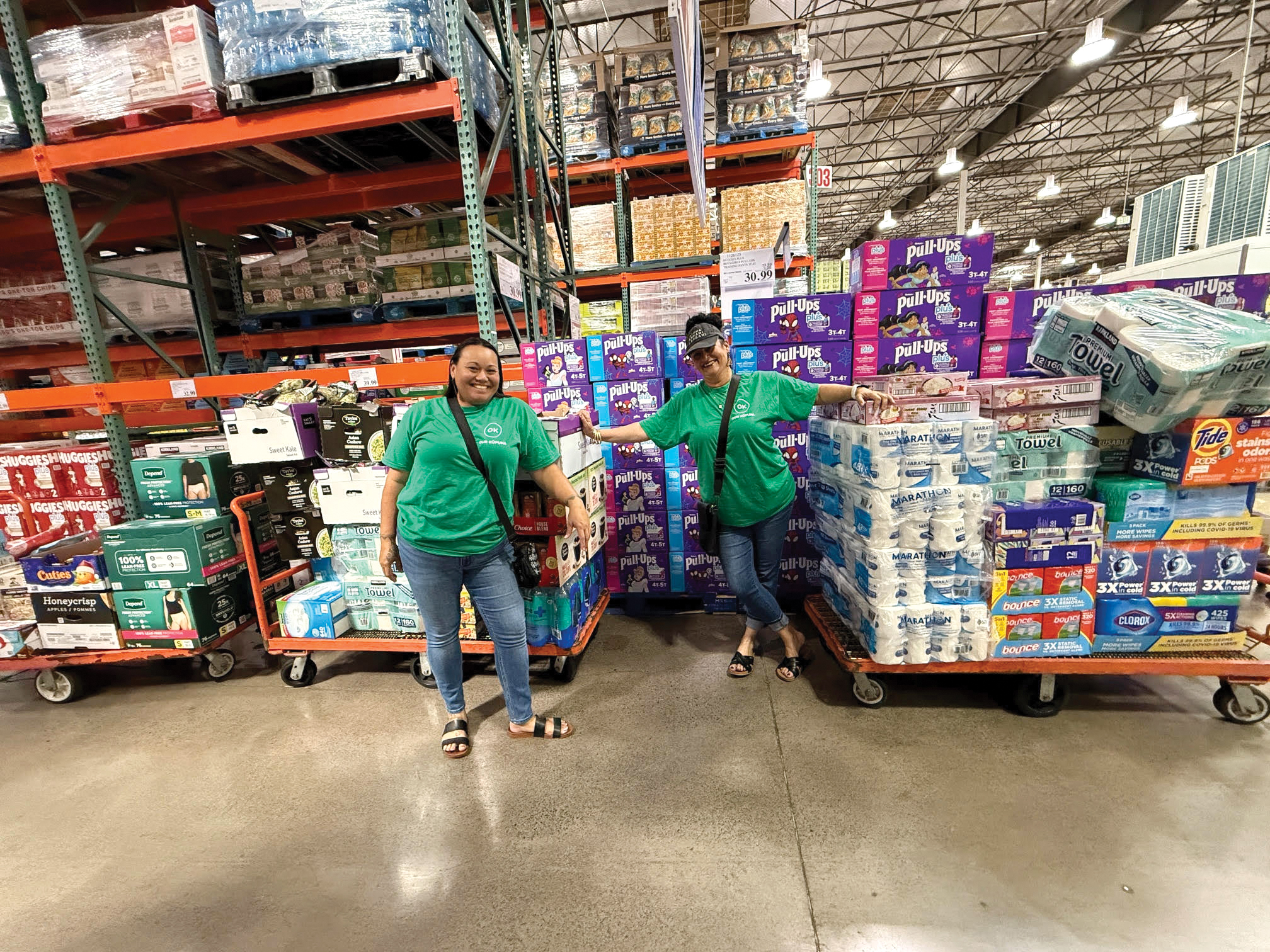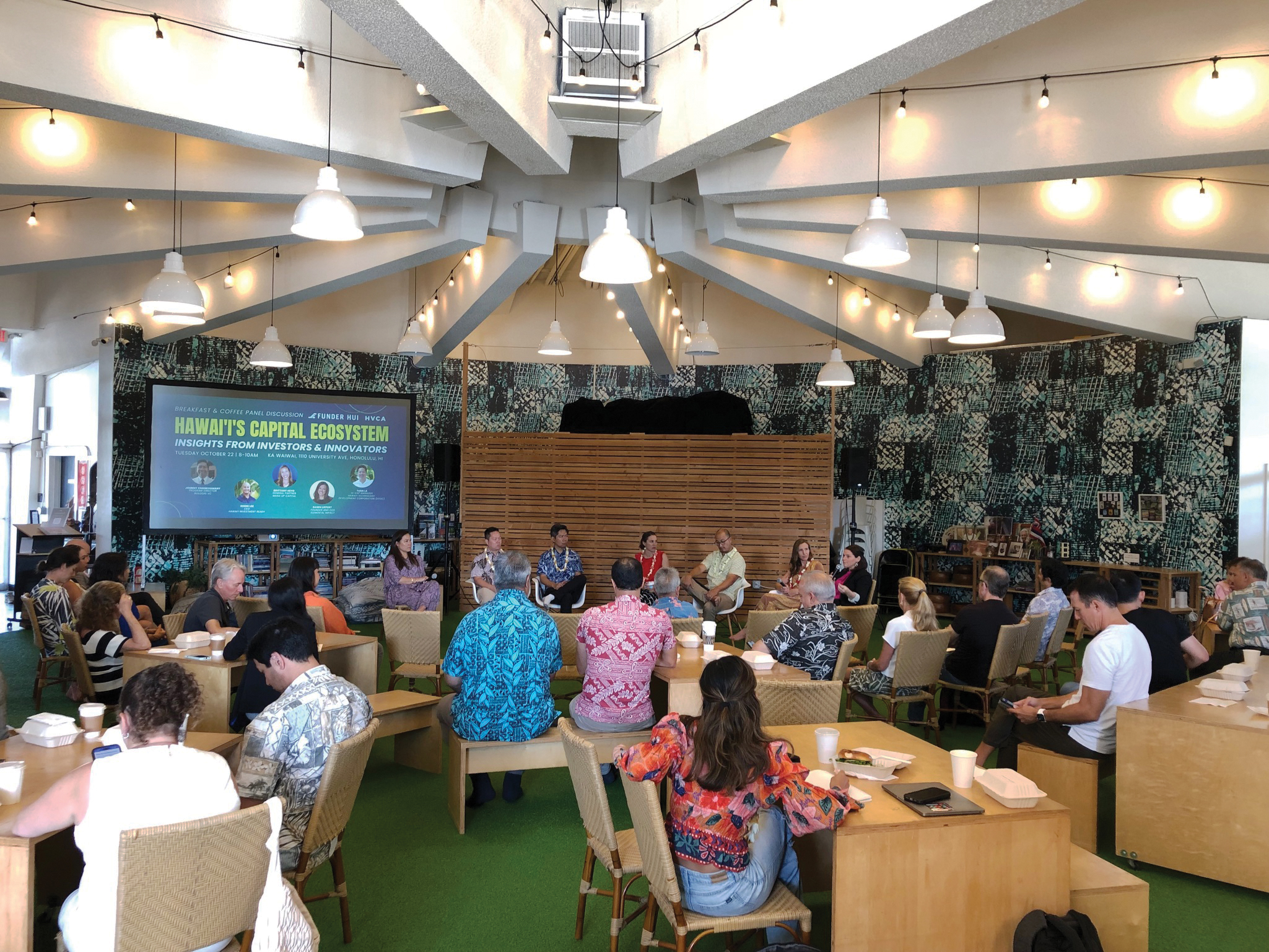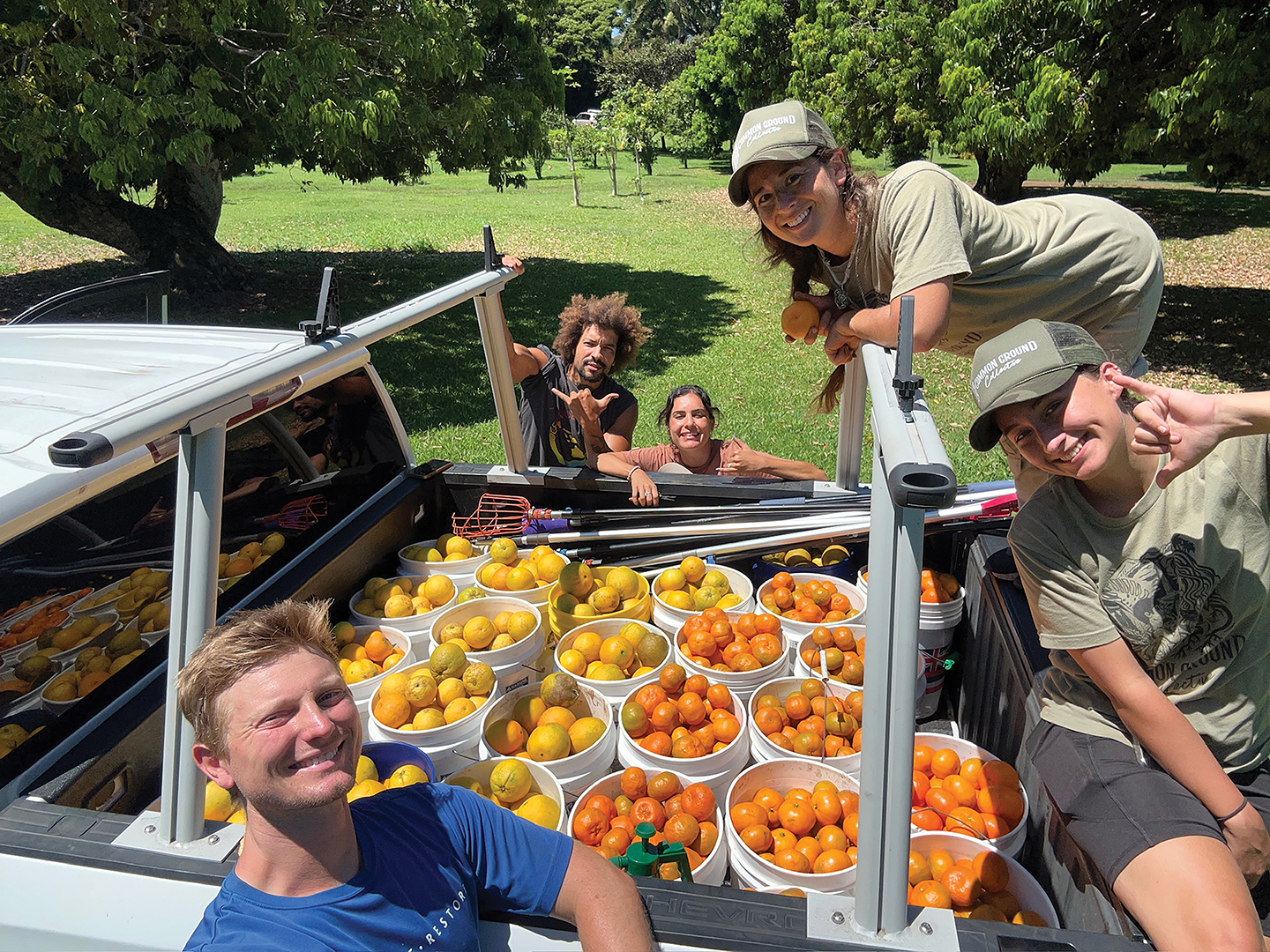Stronger Together
Philanthropic initiatives such as the Maui Recovery Funders Collaborative and Funder Hui, help streamline funding and expand awareness of community needs.

Maui’s recovery from the devastating August 2023 wildfires is a long journey. It’s currently in the recovery and stabilization phase, the third of four phases as outlined by the Hawai‘i Community Foundation — and the one that will take the longest and cost the most money. It focuses on rebuilding, strengthening health, and supporting community organizations.
Despite the challenges, progress is being made through a combination of community-led initiatives and collaborative philanthropic efforts.
Among these, the newly formed Maui Recovery Funders Collaborative plays a pivotal role. It was established in January by the Hawai‘i Community Foundation, Maui United Way, and Kaiser Permanente to bring together a philanthropic network of organizations to support critical recovery areas, such as housing, behavioral health, economic development, and cultural preservation.
The Collaborative allows nonprofits to apply for multiple grants from a single-entry point, reducing time and effort. “The concept is that this isn’t a pooled fund, it’s a pooled application,” says Keanu Lau Hee, senior director for the Maui Recovery Effort at the Hawai‘I Community Foundation.
“The Maui Recovery Funders Collaborative streamlines the application process for nonprofits, reducing administrative burden while expanding access to critical support. Just as importantly, it serves as a shared platform for funders to view Maui’s recovery landscape collectively,” says Lau Hee. “By exchanging information and insights, we’re able to coordinate funding, identify unmet needs, and collaborate on strategic investments. This collective approach ensures that individual philanthropic efforts are more aligned, impactful, and responsive to the evolving needs of the community.”

Nonprofit applicants will save time, Lau Hee says, because they’ll no longer have to seek out each funder individually to ask for assistance. And it’s good for funders, too. Through the Collaborative, they’ll know right away what projects need funding next.
One of the founding members of the Collaborative, Maui United Way, has both written and fiscally sponsored grant proposals for many organizations since the fires and has seen firsthand how this new approach makes the process more efficient. “Prior to the Collaborative, it was very time-consuming, and we had a lack of capacity to write all of grants our community needed,” says Jeeyun Lee, director of impact at Maui United Way. She says the Maui Recovery Funders Collaborative will “help streamline that process and create more accessibility for newer, more grassroots organizations as well as existing nonprofits within the realm of philanthropy.”
Since the Collaborative was formed in January, a dozen members have joined and over $5 million has been distributed. Discussions are ongoing, with members meeting several times a month to examine recovery efforts.
“Through our conversations with funders, nonprofits, and community leaders, it became clear that a more coordinated approach was needed — one that reduced burdens on applicants and helped funders move in alignment,” says Kehau Meyer, senior program officer for the Maui Recovery Effort at the Hawai‘i Community Foundation. “The Maui Recovery Funders Collaborative formalizes that vision into a model that supports shared strategy, collective accountability, and real-time responsiveness. It’s a structure built with community partners that we believe can be replicated to strengthen recovery efforts here and beyond.
“Kaiser Permanente has been an incredible partner in the health space," says Meyer. Not only have they invested significantly in urgent care needs, but they also stood up clinics quickly and transparently shared their strategies and lessons learned. That kind of openness has strengthened the entire effort.”
Widespread Impact
Over the last two years, Kaiser Permanente has expanded its reach by offering free health care, supportive services, and health insurance for those affected by the disaster, while continually seeking ways to strengthen long-term community recovery.
“That level of thought and care for the community is hard to capture. But you know, just the
commitment they’ve made to both supporting the backbone infrastructure of the Collaborative as well as their continued presence in our discussions is a huge contribution to Maui’s recovery,” says Lau Hee.
Kaiser Permanente also supported the Maui Wildfire Exposure Study (MauiWES), which assesses public health impacts from the fires, and provided critical funding to the Common Ground Collective nonprofit, whose mission is to increase food security.
“It was crucial,” Jennifer Karacas, executive director of the Common Ground Collective, says of the funding. The collective has played a vital role in Maui’s recovery by filling gaps in food access. “We couldn’t have done it without them and other funders.”
Additionally, Kaiser Permanente is a philanthropic partner of the nonprofit Funder Hui, an association of funders and philanthropic-serving organizations that launched in 2020 in the wake of the COVID-19 pandemic.

“Kaiser Permanente provided a grant to Funder Hui, which allowed us to continue these really powerful community convenings on Friday mornings,” says Ashley Lukens Wilder, director of the Funder Hui. “In those, you really see us navigating what’s happening, and who’s being affected, and how they are being affected, and how resources are being mobilized.”
Although Funder Hui and the Maui Recovery Funders Collaborative are both made up of funders, they each have distinct purposes. Funder Hui explores a broad range of topics, engages with subject matter experts, and facilitates discussions on how to collectively respond. The Collaborative is focused specifically on supporting and funding Maui’s recovery.
Since 2020, Funder Hui has organized over 150 in-person and virtual community-led conversations about a variety of topics, including Maui’s recovery status and needs.
“The Kaiser Permanente team was in it from the moment things started to unfold,” Wilder says. “What I observed was a really deep commitment to listening to the community and really trying to understand what the community's needs were, not just immediate needs, but also long-term visions for health and wellness and resilience.”
And as recovery continues, philanthropic initiatives like these, grounded in collaboration and collective dedication, help to accelerate Maui’s path ahead.